Halogen Heater vs Fan Vs Quartz Vs Oil – What Is The Best Option?
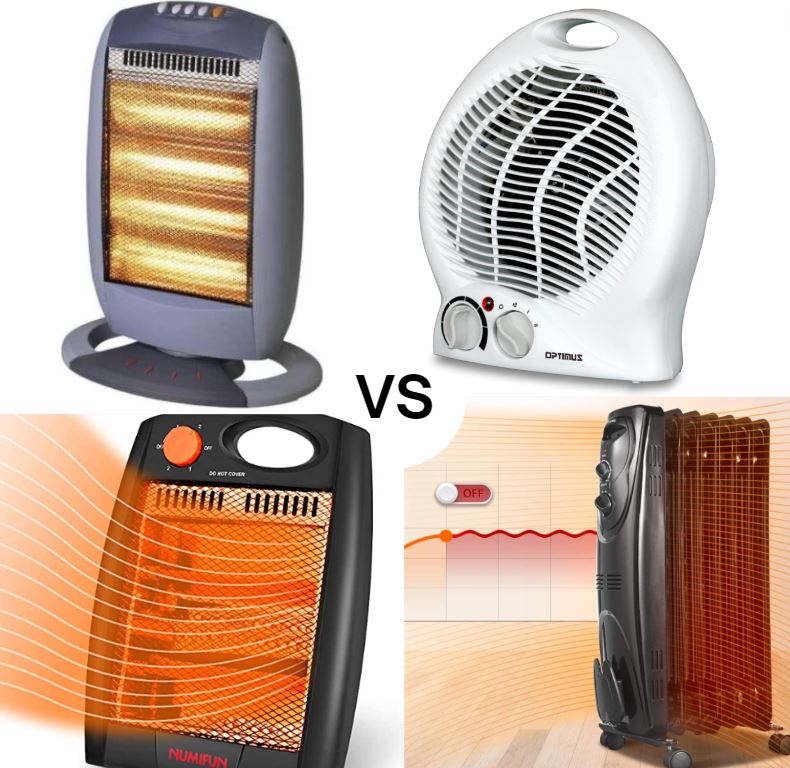
You know how the old adage goes: there’s more than one way to skin a cat.
This saying applies perfectly to room heating. In 2022, there are a lot of different ways you can heat small spaces.
And no, we’re not talking about central heating. We’re talking about more energy-efficient methods of heating a room because these days, everyone is looking to save money.
So we tested 4 of the most popular types of space heaters currently on the market: quartz heaters, halogen heaters, oil-filled heaters and heat fans.
Each has their own pros and cons so let’s take a look at them.
Halogen Heater Overview
“Halogen heaters use bulbs similar to normal light bulbs. The bulbs are filled with halogen which is what provides the heat. Halogen lamps can be especially useful in rooms that could use extra light.”
Quartz Heater Overview
“Quartz heaters also emit light so they may be useful where you need more illumination. They are typically made with cylinders that are filled with quartz that creates ions which in turn, give off heat. Like most of the heaters we will discuss in this article, quartz heaters are good for heating small rooms.”
Oil-Filled Heater Overview
“Oil-filled heaters are typically the most expensive types of room heaters. One reason for the higher price is that they are capable of heating large rooms. They run quiet but require regular refilling. They take a while to heat up but once they do, they’re capable of heating large rooms.”
Heating Fan Overview
“Heating fans typically use a metallic filament that heats up once the current passes over them. Then, an internal fan blows on the heated filament. The heated air is then circulated throughout the room. These types of heaters typically don’t generate any light and are used for small rooms.”
Halogen Heater vs Fan Vs Quartz Vs Oil
All of these kinds of heaters save for oil heaters are really only useful in small rooms.
They all require an electrical connection as well. Oil heaters require the most maintenance as you have to make sure they have enough oil for proper heating.
Quartz and halogen heaters work almost exactly the same and are used in the same way.
The key difference of course is that one relies on quartz while the other relies on halogen. Fan heaters tend to make the most noise but may offer better room coverage .
Quick Facts
| Quartz | Halogen | Fan | Oil | |
| Maintenance | Low | Low | Low | High |
| Noise | Low | Low | High | Medium |
| Drops Humidity? | Yes | Yes | Yes | No |
Halogen Heaters
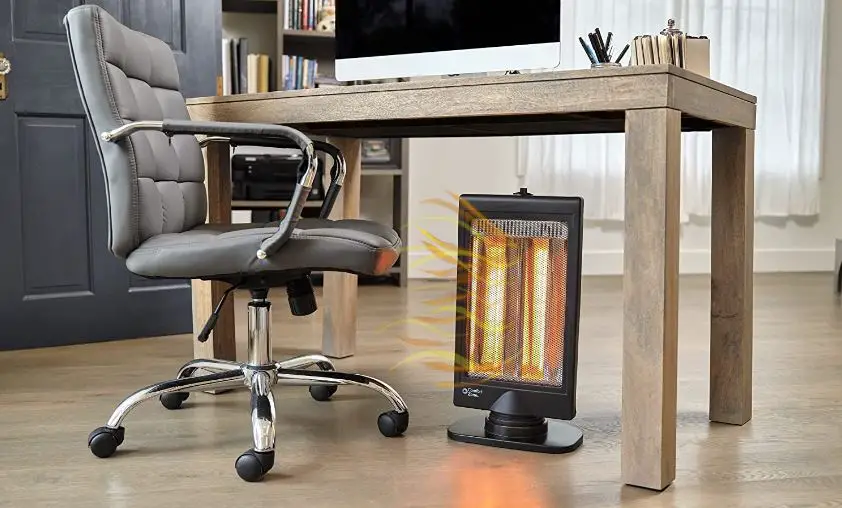
Halogen heaters use bulbs that are filled with halogen in order to heat up the filament.
These bulbs are what emit both the light and the heat. They may be able to rotate (based on the specific model) to provide even room-heating but do not contain fans.
Pros:
- Energy-efficient
- Also produce light
- Mostly noiseless
Cons:
- They can lower humidity
- Relatively short lifespan
One of the most common problems with halogen heaters is the filament.
The filament tends to be delicate and can break in a relatively short amount of time, reducing heating capacity or rendering the heater useless altogether.
The people who would benefit the most from using a halogen heater would be those who need one for a small room. They don’t heat the air around them so they must be run continually.
Fan Heaters
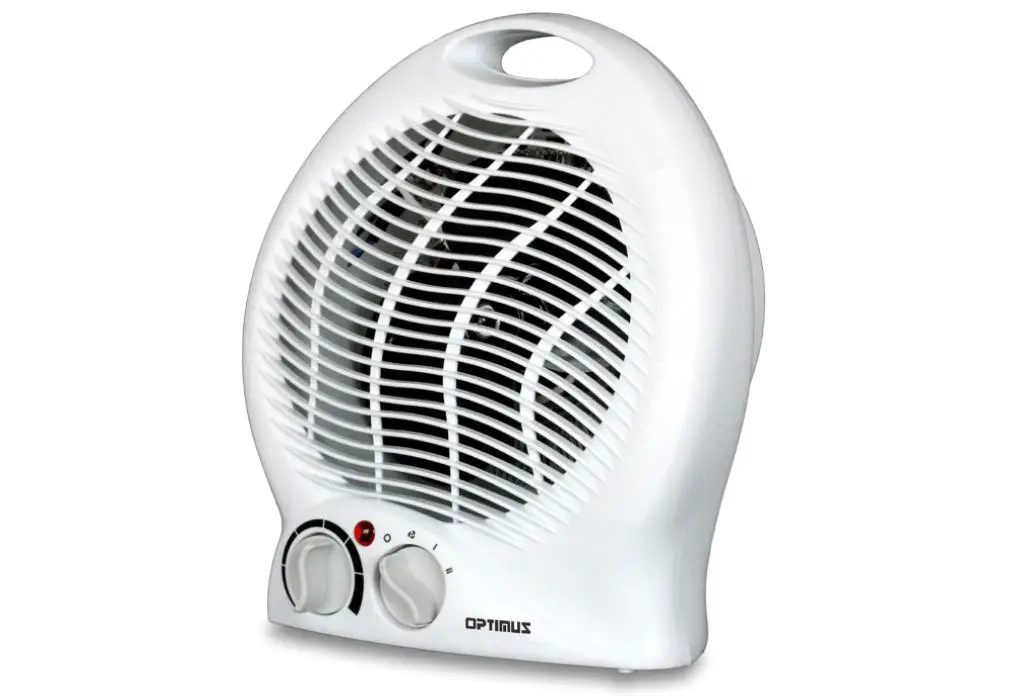
Fan heaters rely on a metal filament.
An internal fan blows on the heated filament to distribute warm air throughout a room.
These types of heaters don’t rely on convection so they are actually more effective for distributing heat to areas not in their immediate vicinity
Pros:
- More energy efficient than convection heaters
- Better at distributing heat
- Larger versions available
Cons:
- Poor temperature regulation
- They make noise
One of the most common problems with these kinds of heaters is that sometimes, the fan will keep blowing after the heating element has turned off.
This means that the fan will actually work to cool down the room when it is running without the heating element.
Fan heaters can be very useful in workshops and larger spaces as they can come in large-capacity models.
Quartz Heaters
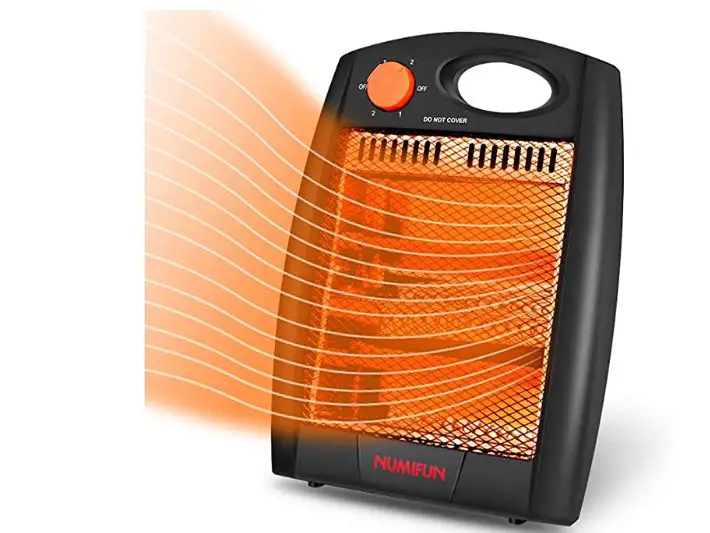
Cylindrical tubes are filled with quartz which heats up the internal filaments. These are convection-type heaters.
Pros:
- Good for small room heating
- Affordable
- Provides light
Cons:
- Lowers humidity
- UV light concern
One major concern of these kinds of heaters is that they can lower the humidity in a room and cause skin irritation.
These kinds of heaters would be best for people who don’t have skin conditions like eczema.
Oil Heaters
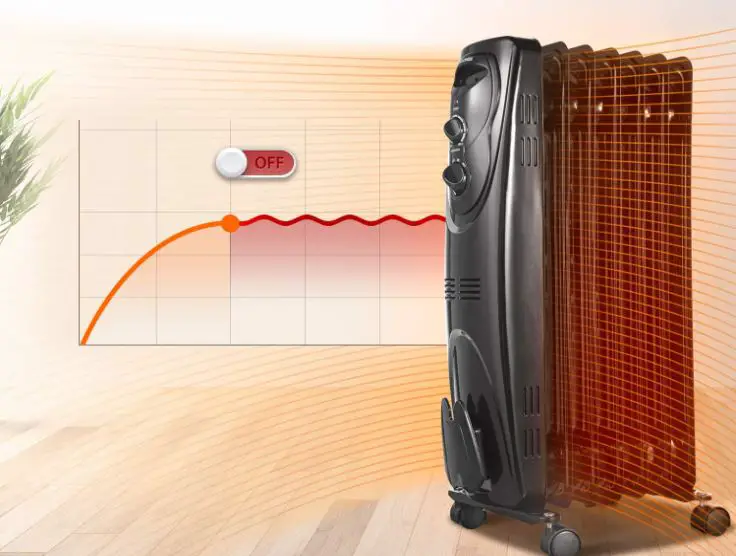
Oil is heated internally much like a radiator. This is another example of a convection heater.
Pros:
- Steady heating
- Good temperature regulation
- Safer for kids
Cons:
- Takes a while to heat up
- High-maintenance
With these kinds of heaters, you have to make sure their oil reservoir is filled, which is one of the most common problems that people have with them. They would be best for people with small children or pets as they don’t have any exposed heating element.
Which is Best Overall?
It depends on your preferences and concerns. If you have small children or pets, an oil heater would be best. Also, if you have sensitive skin, oil heaters won’t cause irritation. However, if you want quick heating, quartz and halogen heaters would be best.
Room Size
Halogen and quartz heaters are best for small rooms while oil and fan heaters are best for larger rooms.
Which is the Most Expensive to Run?
Fan heaters can be expensive when the fan runs after the heating element turns off. However, oil heaters can take a while to heat up which can contribute to excess power-consumption. Halogen and quartz tend to be the most energy-efficient.
Our Favorite Fan Heater
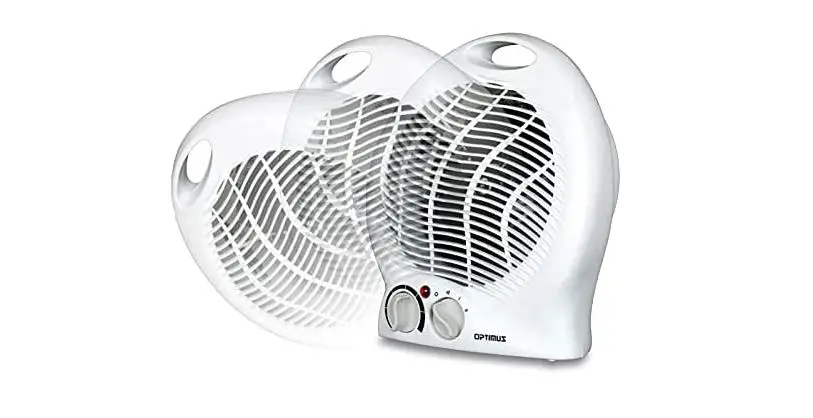
The Optimus H-1322 is affordable, has 2 heat settings and has 4 fan speed settings. It can also be used as just a fan.
Pros:
- Very Affordable
- Energy Efficient
Cons:
- Low heating capacity
Overall Score: 95/100
Check Out More Reviews Here:
Our Favorite Quartz Heater
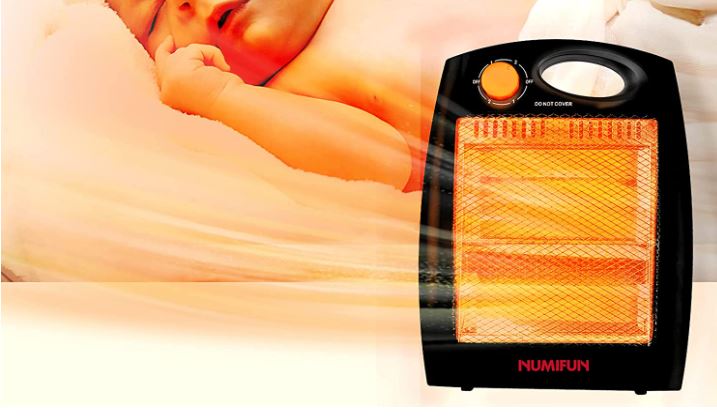
The Numifun Infrared Heater operates at a max of 600 watts but also has a 300 watt setting. It also has a handle to easily move it from room to room.
Pros:
- Energy-efficient
- No noise
Cons:
- Lowers humidity
Overall Score: 94/100
Check Out More Reviews Here:
Our Favorite Oil Heater
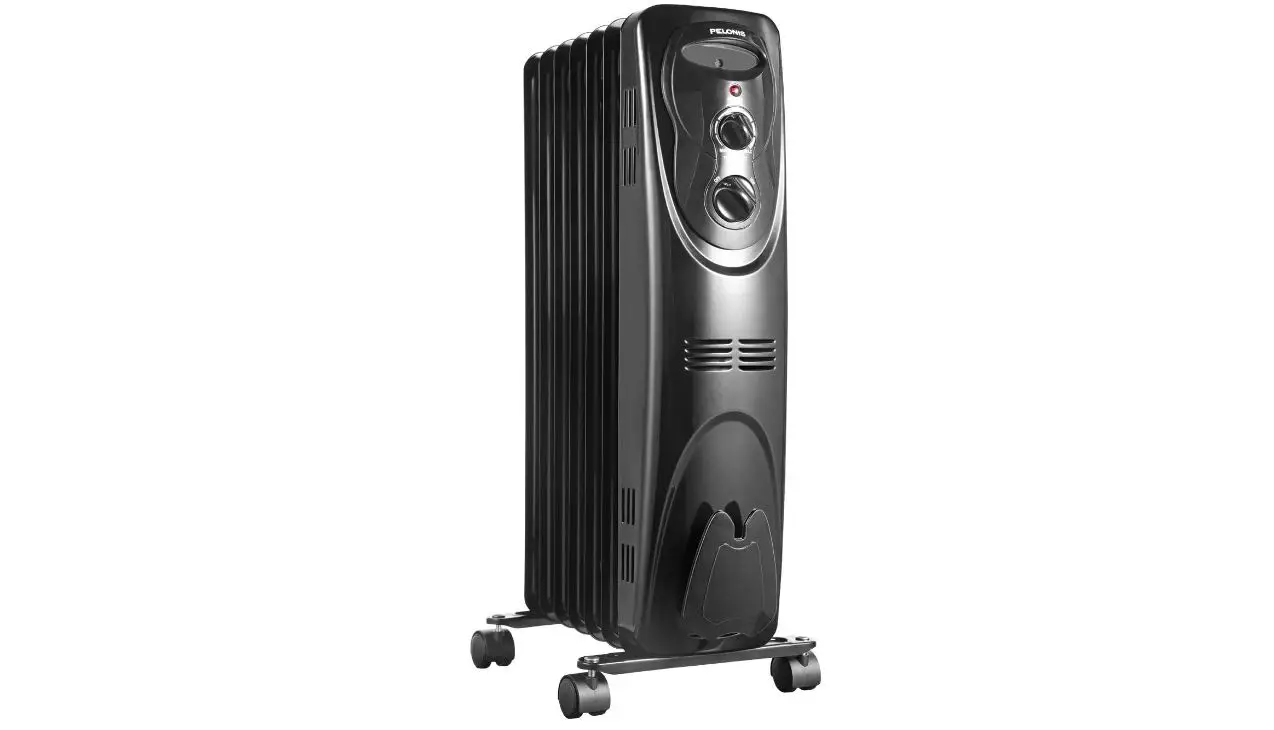
The Pelonis PHO15A2AGB has 4 caster wheels so it can easily be moved. It also has three heat settings and auto shut-off safety features.
Pros:
- Even heating
- 1-year warranty
Cons:
- Takes a while to heat up
Overall Score: 93/100
Check Out More Reviews Here:
Our Favorite Halogen Heater
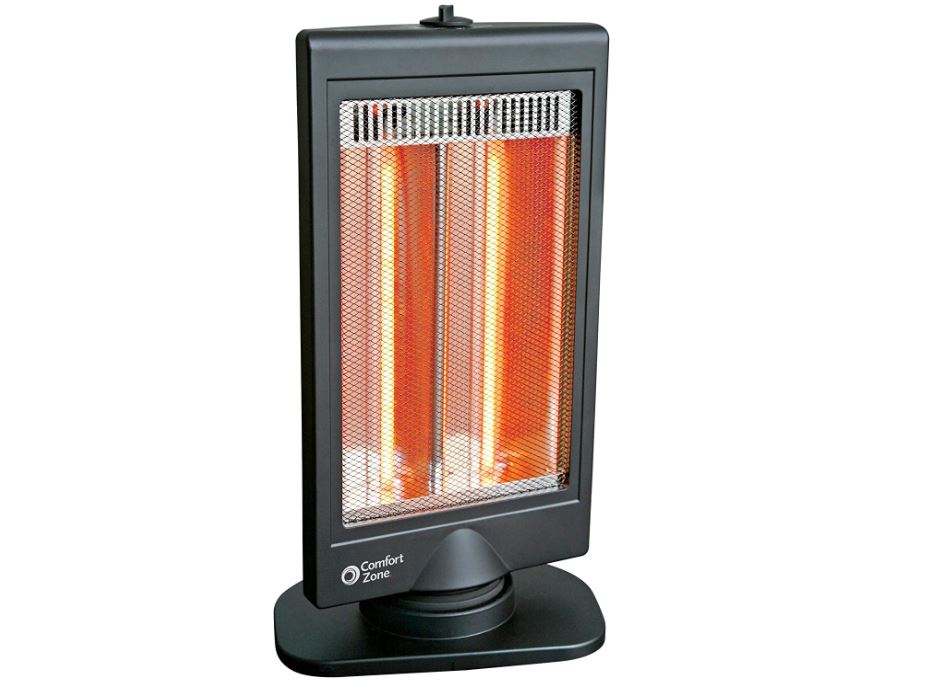
The Comfort Zone CZHTV9 Oscillating Electric Halogen Radiant Heater has two heat settings and rotates to distribute heat evenly. It also has a tip over shutoff feature for safety.
Pros:
- Great for small spaces
- Slim design
Cons:
- Poor longevity
Overall Score: 93/100
Check Out More Reviews Here:
FAQs
Quartz Vs Halogen Heater – Which is Better?
Of all these heaters, these two are most similar. They are both convection heaters that also produce light. They essentially have the same pros and cons and are generally considered interchangeable so one really isn’t better than the other.
Fan Heater Vs Halogen Heater – Which is Better?
If you have a larger room or if you need better heat distribution, a fan heater would be better. However, if want quiet operation and better energy efficiency, a halogen heater would be better.
Halogen Heater Vs Oil Heater – Which is Better?
An oil heater may be better if you are concerned about safety. Oil heaters don’t have any exposed heating elements so there is no risk of small children or pets getting burned by them. However, halogen heaters heat up quicker than oil heaters so they are generally more energy-efficient.
Fan Heater Vs Oil Heater – Which is Better?
Both of these kinds of heaters are safe for pets and children. They are also both suitable for larger rooms. However, fan heaters get up to temperatures quicker than oil heaters so they tend to be more energy-efficient.
Quartz Heater Vs Oil Heater – Which is Better?
Quartz heaters are energy-efficient; but they only heat the area directly around them. Oil heaters on the other hand offer better heat distribution over a larger area; but they typically consume more energy than quartz heaters. For large rooms, oil heaters are better.
PTC Heater Vs Fan Heater
PTC stands for positive temperature coefficient. These kinds of heaters use special ceramic discs that produce heat. Fan heaters are better for room heating while PTC heaters are typically used in the food and beverage industry.
Final Assessment

So which is the best option? Halogen, quartz, fan or oil? In the end it will depend on your preferences and needs.
For example, if you have skin conditions, you will want to go with oil or fan heaters.
On the other hand, if you have a larger area to heat, a fan or oil heater would be best. To get the best heater, be sure to carefully evaluate each one’s pros and cons.



